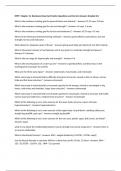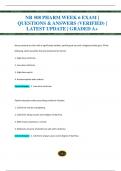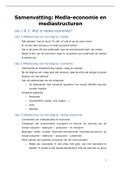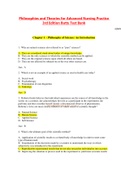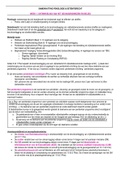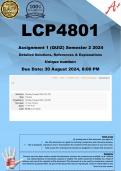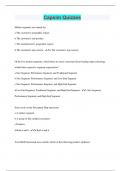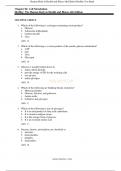Examen
NFPT- Chapter 12- Resistance Exercise Practice Questions and Correct Answers (Graded A+)
- Cours
- Établissement
NFPT- Chapter 12- Resistance Exercise Practice Questions and Correct Answers (Graded A+) What is the resistance training goal for general fitness and stamina? - Answers 12-15 reps, 3-8 sets What is the resistance training goal for size and strength? - Answers 4-6 reps, 1-6 sets What is the resis...
[Montrer plus]
